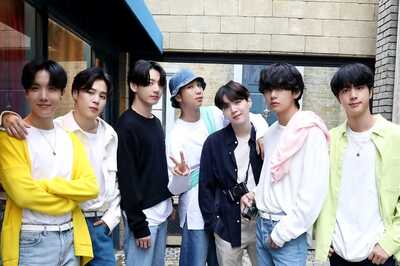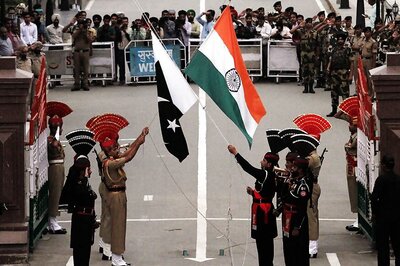
views
I would be lying if I didn't say that I enjoyed Four More Shots Please! Season 2. The sequel is definitely better than the original build as it takes new, inspired directions— and often surprises along the way.
The four girls have a reunion in Istanbul after four months when Siddhi (Maanvi Gagroo) panic calls Umang (Bani J) to rant about her loneliness. This time, they promise to be by each other's side through life's absolute lows and highs, no matter what.
Damini (Sayani Gupta) has hit a writer's block and is struggling to find the motivation to finish her book. She is also figuring her relationship with Jeh (Prateik Babbar). Anjana (Kirti Kulhari), on the other hand, is getting cold feet about her boyfriend Arjun (Ankur Rathee), who has started behaving like an ideal husband.
Umang learns about Samara's (Lisa Ray) mental breakdown in public through social media. Extremely disturbed by the video, a helpless Umang tries to reach out to Samara again. Siddhi has not been able to overcome a heartbreak caused by sudden leaving of her fiance Mihir (Rajeev Siddhartha).
What I like about these four women in this season is that they have grown more respectful towards each other and recognise one another’s problems even better. They give each other the space and the support necessary for progressive womanhood.
The another good thing about Four More Shots Please! Season 2 is that unlike the first part, it does not show its women protagonists in need of men to solve their problems as well as endorse the hegemonic belief that women are co-dependent, insecure and weak.
But there is also a desire for an easy narrative of women taking on the status quo in the show. That's why it falls apart so quickly. Their struggles don't exactly resonate the way they should because these women appear to skip past the deeply entrenched gender norms so easily that it makes me wonder-- Do women really have it that easy?
The show also never really digs deep into Umang's real and intense struggle of being a lesbian from a small town, and deals with her sexuality only on the surface. Another glaring problem that I have with the show is Maanvi Gagroo's character of Siddhi, a super-rich and spoiled woman in her late twenties, who consciously internalises her confusion and oppression on a guy she works with.
In addition, Damini, a deadly serious, and fiercely outspoken journalist, who got fired from her own company for writing a controversial article in the last season, is unemployed, and yet living a comfortable and luxurious life, which is a bit too much to stomach. Looking at her privileged face throughout the show, it is impossible for any journalist or a woman with less advantages to at all identify with the character.
The sad part is that Devika Bhagat, the writer of the show, never makes these women acknowledge and understand their own privilege, and often seems to complicate their lives for the sake of it. Their lives seem entirely emblematic of a cultural moment in which feminism and wokeness are fashionable and trendy, so to speak. That’s one of the reasons their “girl power” chants and “smash the patriarchy” cry ring a little hollow to me.
And this is precisely why it is important for our writers to understand the significance of recognising and acknowledging intersectionality when tackling patriarchy, sexism and economic inequality in shows or films. Failing to acknowledge this diversity of experience leads to un-inclusive decisions about what feminism should look like and what it should achieve.
Having said that, the show has its moments. Kirti Kulhari's Anjana as an ambitious single working mother stands out most, and holds your attention right to the very end.




















Comments
0 comment